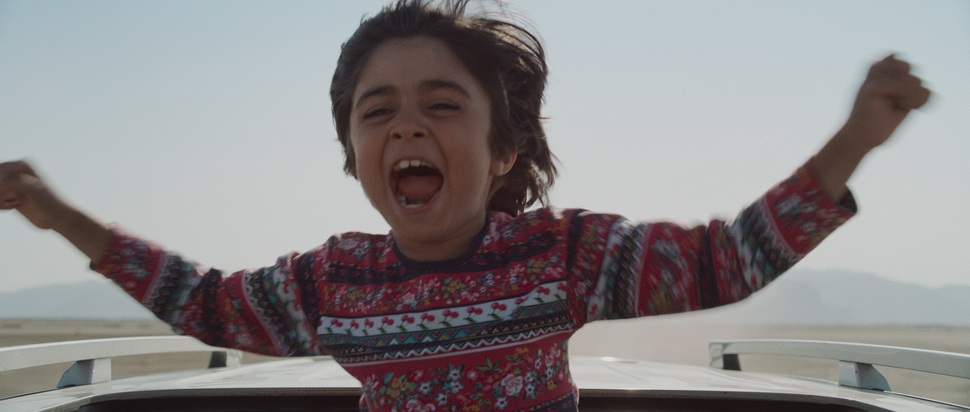Panah Panahi on his debut feature, Hit the Road
Iranian filmmaker Panah Panahi – the son of Jafar Panahi – makes his debut with bittersweet family road movie Hit the Road. He speaks to us about creating cinema within Iran's oppressive regime and the importance of combining heartbreak with humour
For many in Iran, fleeing the country and its authoritarian regime seems to be the only way to find freedom. Yet in director Panah Panahi’s debut film, Hit the Road, that desperation to escape is tinged by the sadness and guilt that comes from leaving behind the people you love. The film initially seems to be following a family on a simple road trip, but it quickly becomes clear they are attempting to smuggle their eldest son out of the country. Despite its heavy subject matter, Hit the Road is surprisingly sprightly, full of familial bickering between the eldest son and his irascible father. Ahead of the film's release, we speak to Panahi about the current political atmosphere of Iran, and how he discovered Raylan Sarlak, the 11-year-old who plays the family’s irrepressible youngest child.
How much is Hit the Road about the things that are left unsaid?
What remains unsaid is at the heart of our culture, even above politics or the current situation. Iranian culture is a social structure in which you cannot be honest, you cannot express your opinions or needs or your reactions. You always have to think about what’s acceptable socially. I mean, the relationship between the father and (eldest) son is something I’ve experienced, you cannot just express freely how you feel. You don’t even know how you feel, because you first know what you’re allowed to say or not allowed to say, before realising what you actually feel. This has structured our way of being, our way of feeling, so much so that it is a part of our DNA. Above that, there is the political structure which is also extremely oppressive and defined by its restrictions. It’s not that I’ve decided to make a film about what’s been left unsaid, it’s that when I’m telling the story I see what options remain for me, and the things you cannot say, what you can say. That becomes my material in my film.
Do you think there’s an element of guilt that stays with people who do leave Iran?
I think it depends on how you see yourself in life and how you see yourself in society, but I think for myself, whenever I try and consider this option of leaving the country, this is what makes me hesitate, this is what makes me wonder if I would feel bad once I saved my own life. I wonder if I wouldn’t feel that I would have been more useful in my own country for my own society.
Rayan Sarlak is an absolute force of nature – how did you find him and what was it like directing him?
I was extremely lucky to meet this child. He was the third kid that I saw, and immediately when I saw the energy that he had, this ease that he had in being with others and talking with people, I said: "This kid I need." I didn’t even audition him, to keep his freshness and spontaneity.
He had no script and he could not read. So every morning, it was his mother who would read it to him and he would start learning his lines and once he knew them, I would take him aside and start playing with him, joking with him, talking with him to make him reach the appropriate level of energy for the scene of the day. Once he had this level I would just send him on the set. As soon as I went to him to say that something had to be a bit more subtle, he immediately understood it. He even suggested to me how to improve some of the moments where it’s all a bit too heavy; he had an intuition every day. I think he’s the most impressive genius I’ve worked with.
Hit the Road is a film that combines whimsy with great sadness. What makes the combination of comedy and tragedy so potent?
That’s really how I experience life. The films that I like, the films that I find lifelike, both aspects are there, tragedy and comedy, laughter and tears. If there’s only laughter or only crying, it’s quite monotonous and boring for me. The interest is the combination of both and this is also how I see life. That’s my character and my way of expression. I’ve seen it in my own life, in the happiest moments of my life, how easily I can all of a sudden switch to my darkest mood, and also when everything is really bad, how I still keep this hope and this ability to laugh about things.
Hit the Road is released 29 Jul by Picturehouse Entertainment and reviewed in the July issue of the Skinny
